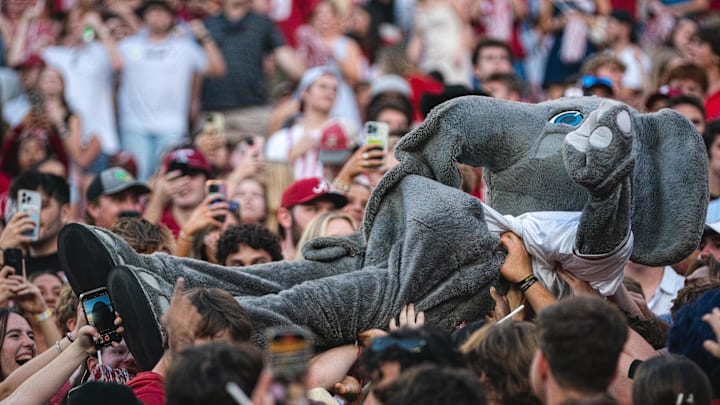Alabama football fans were concerned when Bill Connelly's computer model projected a Missouri win. The SP+ metrics produced a 28-26 win for the Tigers with a probability of 54%.
Four other well-established resources project an Alabama win. ESPN Analytics gives Alabama Football a 63.4% probability of winning. Jeff Sagarin's model has Alabama winning 36-24, with a probability of 59%. The Massy Ratings project a 31-24 Alabama win with a probability of 69%.
Brian Fremeau provides an outstanding amount of data in his FEI Ratings. His model projects a 32-23 Alabama Crimson Tide win, with a 54.5% probability. Fremau's Efficiency Ratings show why Alabama is the best team in Saturday morning's contest.
Fremeau's Week 6 FEI Ratings have the Alabama Crimson Tide as college football's No. 4 team. The Missouri Tigers are ranked No. 19. Alabama is actually tied with Georgia at No. 3 with an FEI Rating of 1.26. The Bulldogs get an edge over the Crimson Tide in the FEI Ratings from their Defensive Efficiency Rating being higher than the Crimson Tide.
Alabama Football and Missouri Efficiency Ratings
In opponent-adjusted Offensive Efficiency, Alabama is ranked No. 4. Only Oregon, Ohio State, and USC are rated higher. The Offensive Efficiency Rating for Missouri is No. 17.
In opponent-adjusted Defensive Efficiency, Alabama is ranked No. 6. Three SEC teams are ranked higher than the Crimson Tide in Defensive Efficiency: Oklahoma (No. 2), Texas (No. 4), and Texas A&M (No. 5). Missouri is ranked No. 28.
With Conor Talty having been inconsistent in long field goal attempts, the Crimson Tide's Special Teams Efficiency is its weakest ranking at No. 29. Missouri lost its top placekicker to an ACL injury in Week 1. Freshman walk-on Robert Meyer has made 6-of-7, but is not trusted beyond 40 yards. The Missouri Special Teams Efficiency Ranking is No. 67.
The most significant difference between Alabama and Missouri is in strength of schedule. Fremau ranks schedule strength in three categories, with Alabama ranked No. 6, No. 3, and No. 7. Missouri's three rankings are No. 80, No. 78, and No. 86.
It is reasonable to question whether any computer model has enough 2025 data to provide acceptable accuracy. Unmeasurable variables affect outcomes of games, and even late in a season, metrics can be best described as providing probabilities, rather than precise predictions.
